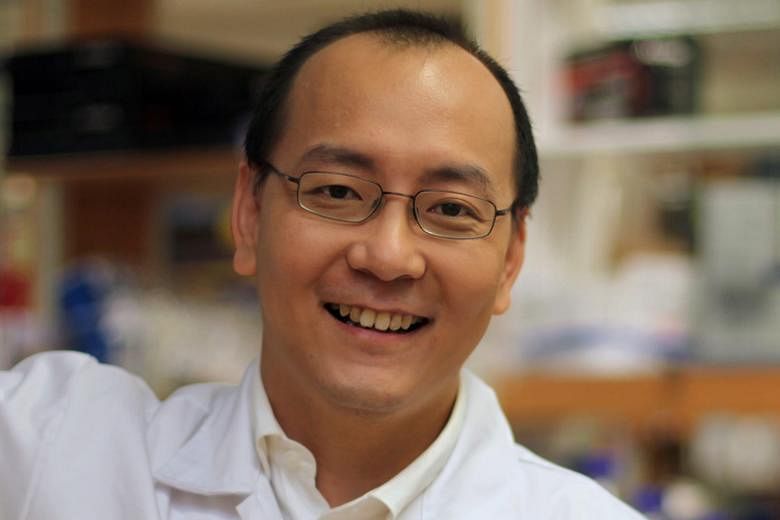The field of research has always fascinated Professor Chng Wee Joo.
While pursuing his medical degree in the University of Leeds in the United Kingdom in the 1990s, it struck him that many important advancements in medicine, and treatment such as the discovery of the penicillin drug, were made through scientific discoveries.
"I am always more fascinated by... how revolutionary these discoveries were than the actual clinical management of patients," said Prof Chng, who is director and senior consultant at the National University Cancer Institute, Singapore (NCIS).
"I realised that to make real impact in a setting where we still know so little about human health and how to treat and cure deadly conditions, research will be key to push the limits and achieve breakthroughs."
His interest in research garnered the 45-year-old the National Outstanding Clinician Scientist Award in August this year. His research in the field of blood cancers has led to better patient outcomes and understanding of the diseases. He has also pioneered new ways to deliver cancer treatment.
Prof Chng played a key role in the introduction of the first outpatient autologous stem cell transplant for myeloma - a type of bone marrow cancer - which was performed at the NCIS, located at the National University Hospital, in 2011.
The outpatient service allows patients to go home in between stem cell transplant procedures instead of being hospitalised throughout. This helps to cut patient costs by 30 per cent and frees up hospital resources, said Prof Chng.
The clinician scientist at the National University Health System also started a programme last year where patients can have their injections for Velcade - a chemotherapy drug for myeloma - administered by a nurse in their homes.
Prof Chng now spends 70 per cent of his time on research and is conducting clinical trials, which will hopefully lead to new drugs being developed for patients with myeloma. The remainder of his time is spent seeing patients, of which there are about 150 unique cases in any year. More than 90 per cent would be myeloma cases.
"The basic scientist may not appreciate the potential clinical significance of their discovery, and the clinical investigator may not be able to articulate gaps in the clinical arena to the basic scientist such that they understand. This is where the clinician scientist comes in," said Prof Chng.
"It is therefore not surprising that the areas of medicine where there are most new findings that have clinical impact are areas where there are most clinician scientists."
Carolyn Khew

